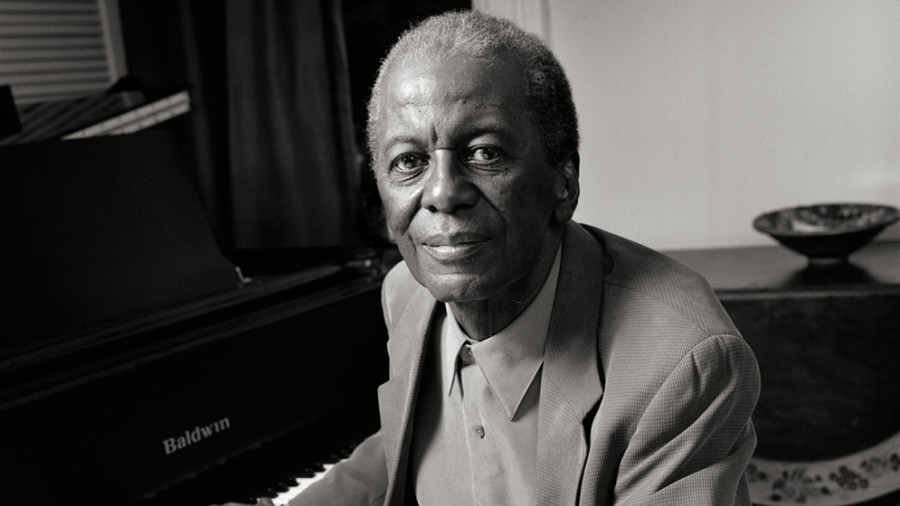Fifty years ago today, Andrew Hill recorded what would become his signature album: Point of Departure. Fifty years later, it still sounds like it could have been recorded yesterday. Assembling a murderer’s row of horn players (Eric Dolphy, Kenny Dorham, Joe Henderson) with a rhythm section for the ages (Hill, Richard Davis, Tony Williams), Hill juxtaposed complex, layered harmonies with charged grooves. The result occupies that rare territory between the comfort of the familiar and the allure of the perceptibly unique.
Point of Departure is but the best-known of many works that made the late Andrew Hill a hero to many pianists and composers. This 2005 episode of Piano Jazz finds Hill, during a welcome late-career rush of attention, opening up to Marian McPartland. — Patrick Jarenwattananon, A Blog Supreme
Andrew Hill was a pianist and composer of extraordinary talent, his spare and angular style and rhythmic and melodic concepts are wholly his own. His harmonic ideas also fall into the same quiet brilliance. In a session from 2005, Piano Jazz host Marian McPartland opens by saying, “I’ve been listening to your music and I certainly have a lot to learn.”
Bio
A native of Chicago, Andrew Hill was interested in music throughout his childhood, and could be found singing and dancing on stage at a young age. By the time he was 13, he had picked up blues and R&B piano, and his first work in music was with local R&B bands like that of Paul Williams. Hill later began to develop his jazz chops in the 1950s while jamming with top-notch players who traveled through Chicago clubs, including Charlie Parker, Miles Davis and Johnny Griffin.
In 1961, Hill moved to New York to be Dinah Washington‘s accompanist, and by 1962, he’d landed a gig playing with Rashaan Roland Kirk in Los Angeles. The following year marked the beginning of Hill’s association with Blue Note Records, which released many of his significant albums. During his Blue Note period, Hill released several records featuring other influential jazz artists, including Joe Henderson, Kenny Dorham, Eric Dolphy, Bobby Hutcherson and Elvin Jones. These now-classic recordings showcase Hill’s remarkably original style, and show that he wasn’t afraid to go against the grain of 1960s post-bop and avant-garde.
By the 1970s, Hill began a career as a jazz educator when he accepted a position at Colgate University. During this time, he also became involved with the Smithsonian, and he performed and conducted workshops at a variety of institutions, from the University of Michigan to Harvard.
The jazz world has recently come to acknowledge Andrew Hill’s contributions. In 2000, 2001, 2003 and 2006, he was named Composer of the Year by the Jazz Journalists Association, and was the first recipient of the Doris Duke Foundation award for jazz composers. In 2003, Hill was honored with the prestigious Danish jazz award, the JazzPar Prize. Hill was diagnosed with lung cancer in 2004, but he continued performing and recording, and his 2006 release, Time Lines, was named Down Beat magazine’s album of the year. The National Endowment for the Arts added Hill to its roster of 2008 Jazz Masters just days before he succumbed to his cancer. Hill died on April 20, 2007, at the age of 75.
Originally recorded Feb. 24, 2005. Originally broadcast Dec. 6, 2005.
9(MDAxNzk1MDc4MDEyMTU0NTY4ODBlNmE3Yw001))


